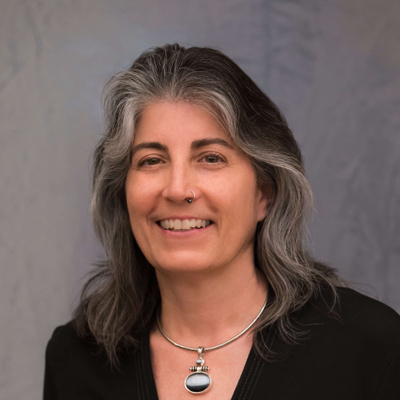I grew up a second generation Italian-American, my dad was first generation Italian-American, and my grandfather an immigrant who landed at New York’s Ellis Island as a teenager from Italy. While my parents and I were living in my grandfather’s home during my early childhood, he and I could never talk, for I did not speak Italian. But it worked just fine, as my aunts and uncles did, and our small rural town of Roseto, nestled at the foot of the Appalachian Mountains in Pennsylvania, was entirely an Italian-American community who lived like one big family.
Back in the 1960s of my childhood, Roseto was a quaint little town, safe enough to leave home without locking doors and let kids bike around the streets without worry. Most everyone had a garden, sharing homegrown delights for each other’s tables. As a tomboy, I spent hours climbing trees, swam in nearby rivers and lakes, played sports, and fished for wonderful trout. We filled many families’ freezers with wild venison in deer season, canned our tomatoes, and offered routine patronage to local dairies for cheese, eggs, and milk (back then in returnable glass bottles). The wine was homemade and enjoyed in moderation. We worked and played hard, had fresh air, clean water, and pure food—and none of it was called “organic” in those days.
Decades later, as an adult who long since moved away, I learned of the medical and cultural studies done on my unassuming little hometown, Roseto—“the little rose.” An article called “The Mystery of the Rosetan People”[1] and a PBS video segment highlight what led scientific medical teams to visit in 1962 to uncover why this Italian-American village was “a virtual fountain of youth, with a heart attack mortality rate roughly half the rate of every surrounding community”[2] who shared the same water and had the same occupational mix, income-level ranges, race, etc. all in common.
The article and PBS segment summarize the phenomenon of my hometown: “What made Rosetans die less from heart disease than identical towns elsewhere? Family ties. Another observation: they had traditional and cohesive family and community relationships. It turns out that Roseto was peopled by strongly knit Italian American families who did everything right and lived right and consequently lived longer. In short, Rosetans were nourished by people.”[3] This was a fact I took for granted growing up, without ever once noticing it (kind of like trying to tell a fish it is wet).
But small-town America and its slower-paced life was never the desire of this immigrant-descendant girl. I had dreams of the big city! So I left for college and, after getting a degree at the Pennsylvania State University, I moved to Philadelphia—the city of brotherly love. I traded the peaceful and pastoral setting of an agricultural college that Penn State began as (set in rural State College, Pennsylvania) for the razzle-dazzle of skyscrapers and city lights, a concrete jungle filled with myriad possibilities and things to do! Every cell in my body was excited! My initial years living in Philly were truly enthralling to this country-mouse turned city-mouse.
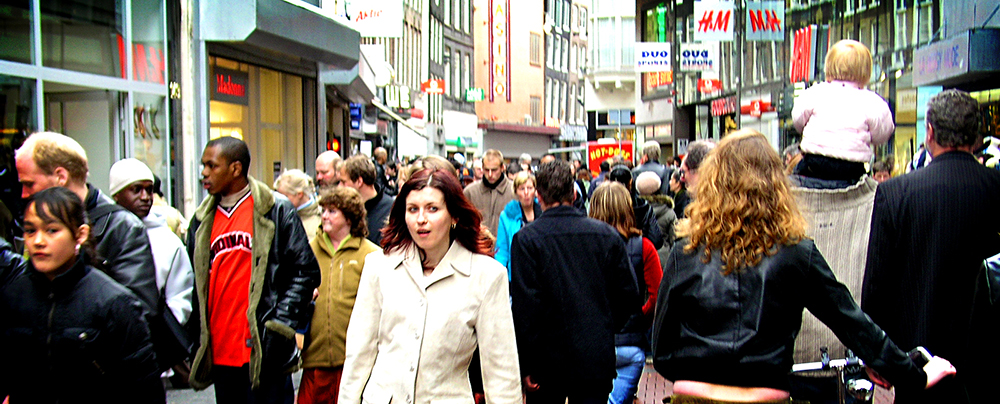
But I eventually found city life quite a contrast, despite what I loved there. I discovered things I did not expect nor liked. You could not really look people in the eye walking down the crowded streets, because the wrong person might follow you and hurt you; friendliness was not a safe habit. My neighbors did not know my name (nor cared to), and I did not know theirs, yet we passed a million times in the elevators, hallways, and parking lots. People often kept to themselves, and many seemed to live “lives of quiet desperation.”[4]
I discovered the city kind of hardens you. You learn to blend quickly, and it just becomes the status quo with everyone being their own island. I am sorry to admit now, that back then there was part of me drawn to the darker side of the sophistication of city life: the cool sharpness of personalities, the snobbish elitist mindsets, the sleek buildings and classy restaurants and flashy cars—symbols of the separation of the “have’s” and “have not’s,” and the feeling of superiority that could temporarily numb out the underlying emptiness in your heart and life. I learned the big city is a place you can easily lose your soul, and I was caught somewhere in between my higher and lower selves.
In hindsight (which is always somehow 20/20), I realize now I was on a track to self-destruction—the sex, drugs, and rock-n-roll of it all can become consuming, even addictive, and despite the counterbalance of wonderful cultural and dynamic places and people, museums, libraries, sports arenas, and entertainment that I loved, time was just passing me by and I was not really doing anything of value with my life, let alone to benefit others.
To be totally frank, I allowed my innate human tendency of self-centeredness to be exacerbated by the narcissism of a capitalistic and materialist society all around me. My slice of the world was not teaching me to give, it was all about getting. I was apathetic about the planet and its problems and did not even know I was contributing to making things worse—not only through my self-absorbed lifestyle but in my consumerism (which contributes to the deterioration of our planetary ecosystems). The more solid morals and values I unknowingly grew up with in small-town America slowly deteriorated, while desensitization to the world and people around me crept into my mind and heart.
Then suddenly—after living in Philly for a decade, at the age of 30, I made the most abrupt and dramatic change of my life: I packed up within 5 weeks, and headed cross country to the southwest, to live in an intentional community I had “stumbled” across in Arizona a few weeks earlier on a trip. I have been here ever since, and that was many years ago, beginning in August and September of 1995. Sometimes I think someone else “walked in” to my body, quit my job, packed up my stuff, hired movers, and drove me cross-country in 4 days, flipping my world upside down forever in an instant. But I am ever so grateful to that higher self in me that literally took the driver’s seat.
At the time, I was about as “mainstream America” as you could get—a posterchild of sorts, from the name-brands, to foreign cars, to vacationing at the Ritz in Paris, high tea at the Four Seasons and Ritz-Carlton, to my Louis Vuitton luggage and $300 Mont Blanc fountain pen. And I remember thinking, “These people in that community are either some of the craziest folk I have ever met, or they may actually be on to something incredible.” So I decided to move 2,700 miles out West to check it out and see for myself, just in case it turned out to be for real.
Sometimes our soul’s hunches are far wiser than our “logical” minds because since that day, I have never looked back and have only visited out East three times since then. In the process of downsizing my life, I gave up my suburban townhouse, my salon facials and spa-day waxings, my Dom Pérignon and glass-bottled Evian, my personal shopper at Bloomingdale’s, my Saab with the leather-heated seats, my weekly manicures and pedicures from the Russian women at Nan Duskin’s Spa on Rittenhouse Square in Center City Philly, my nightly gourmet dinners and private limos for late-night club hopping, my $900/month gym membership at The Sporting Club at The Bellevue, and much much more—all for something I never imagined: a budding inner peace.
And I found it in a place I least expected it: on a 227-acre EcoVillage university campus, with cows, goats, turtles, emus, horses, and some of the world’s largest (and noisiest!) pond frogs, and amidst a very diverse and genuinely lovely group of about 100 people from various continents, with many diverse cultural and religious backgrounds and beliefs—ranging from babies to the elderly.
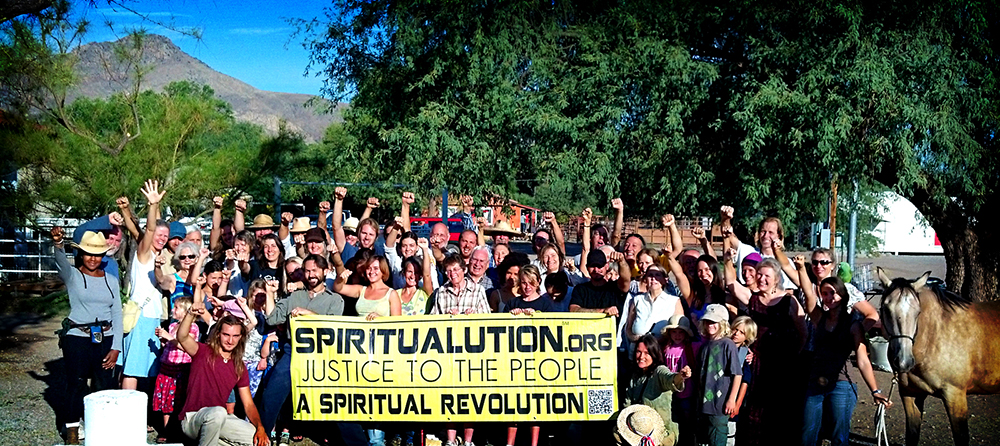 Photo by Global Change Media
Photo by Global Change Media
A quarter of a century later, I find myself doing what seems so normal nowadays (but back then would have blown my mind—and my friends’ minds too!): I make goat cheese, shop at thrift stores (and have a wardrobe full of used clothing), grow sprouts in a jar in my kitchen windowsill, make homemade applesauce, help plant and harvest all kinds of vegetables, and actually like getting my fingernails (which are now very short and unpolished) dirty! I can leave my office momentarily to hang out with horses and play with our dogs.
We must move away from limitless consumer-driven growth and toward a sustainable, low-carbon model. Sometimes our most ethical shopping choice will be to buy nothing.
-Jess Worth from his article “Buy Now, Pay Later”
In the course of a normal week I have opportunities to co-parent and collectively help raise the children in the community, facilitate classes as teacher of spiritual studies, serve as a counselor for a rehabilitation program for youth and young adults, work in offices, help edit and publish books, and serve as an ordained human-rights advocate and minister to those in need.
In hindsight, I realize perhaps one of the funniest aspects is how I have transformed from bragging on how much something cost and name-dropping a brand (like a $700 Donna Karan jacket or $250 Gucci belt) to mentioning how inexpensively I got a bargain at the local Goodwill, for 50 cents or even in a “free box” at a local yard sale!
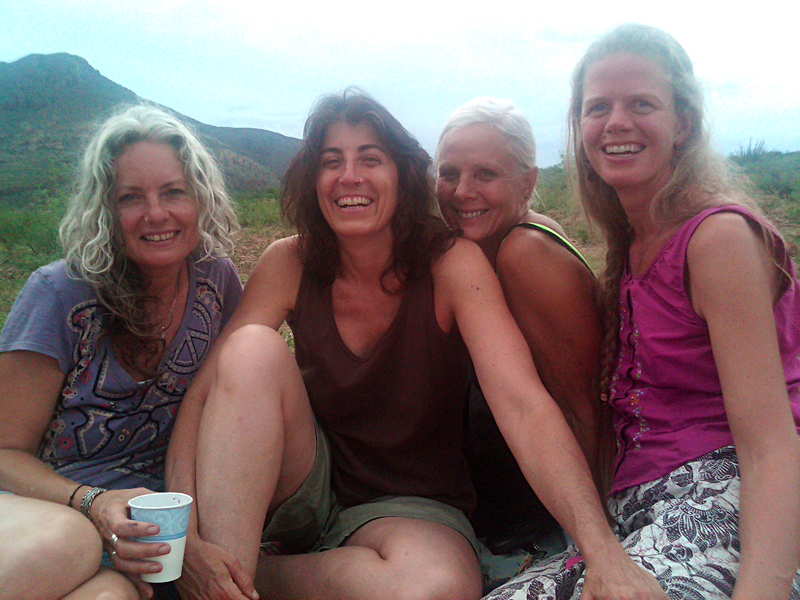 Photo by Global Change Media
Photo by Global Change Media
My current friends and I often picnic (rather than expensively “wine & dine” ourselves) and hike or play cards at home. Shopping is no longer my hobby (nor addiction—thank God!) and has become something I do only out of necessity and moderately, after swapping clothes with my friends is exhausted. And in the midst of all these changes (and many more), I actually find that I even remember to literally stop and smell the roses, which abound in our gardens.
But most of all, I live in community—you know, that nowadays-almost-unheard-of-thing— where people actually care about each other and back it up with their efforts and time with a life-changing commitment to one another. Living in community is what neighborhoods, tribes, and villages used to be like, and it dispels loneliness. It is a vow each person made personally and individually, yet it works cohesively and cooperatively to take care of everyone, and well.
It is an amazing phenomenon, and when visitors tour our community and EcoVillage (located in southern Arizona in Rio Rico/Tubac), they often marvel at what such a small number of folks (approximately 80 adults and about 20 children) can accomplish together! A bit like the Amish, we try to live in harmony and more simply. We honor Mother Nature and seek to leave no trace of our footprint on this sacred earth we have been gifted to help steward.
Among all the benefits of living and sharing my life with others in a much broader sense than anyone’s smaller group of nuclear biological family and close friends could offer, I find I am much healthier (on all levels—physically, mentally, and spiritually) as well as notably happier. The kind of happiness I had before was shallower, often residing in possession of material things and/or the consumption of activities, events, and even people in my life to keep me going. My “consumer” lifestyle did not sustain anyone or anything, not even myself. Everything was externally derived.
Now, I am internally driven, powered by a commitment to something greater than myself, that for me includes a large and diverse “family” from around the globe—extending beyond my local community and including all my planetary brothers and sisters—and a personal walk in developing my own relationship with God, all with the goal of helping to create positive, lasting global change.
The peace I have now comes from knowing I am on a track of becoming a better person every year, and working to get away from the self-absorption of my past and into the service of others whom I share this world with. What I am finding is that my lifestyle of having the blessing of living in a thriving EcoVillage makes me “sustainable.” My life, within the duration of it, is now more “eco” or ecological, in that it is much more holistic lifestyle than when I lived alone, trying to “make it” in the world and struggling the whole way. The returns I reap in living in community and on a farm and ranch far outweigh any “sacrifices” I have had to make to attain an Aquarian lifestyle in this budding age of cooperation.
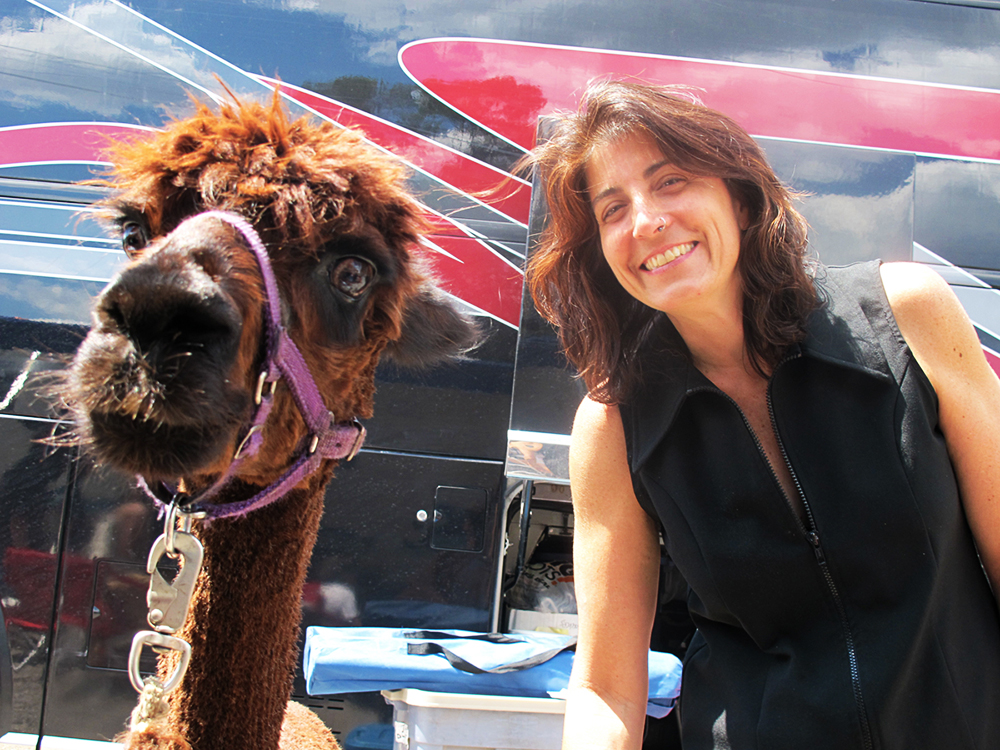 On tour with Van of Urantia's Bright & Morning Star Band. (Photo by Global Change Media)
On tour with Van of Urantia's Bright & Morning Star Band. (Photo by Global Change Media)
In some way (actually a really big way), I think my soul is a good bit “greener” and will go on in eternity all the more because of my experiences in EcoVillage living. I work towards a day when the whole planet will unite as one planetary family, in a global rhythm, and I will not quit until, together, we achieve that for every man, woman, and child on Earth.
I think my life-transforming experiences might well be summed up in the words of world-renowned author, speaker, and life-coach Tony Robbins, who said, “It’s not about what you can GET. It’s about WHO you can become, and what you can GIVE, because of it.” That is my new raison d’être. And I encourage each of us worldwide to unite in the personal “greening” of our own body mind, and soul, because it is sustainable, for us all.
[1] “The Mystery of the Roseto People” on The Huffington Post at: http://www.huffingtonpost.com/dr-rock-positano/the-mystery-of-the-roseta_b_73260.html
[2] Ibid.
[3] Ibid.
[4] The nineteenth century American philosopher and writer, Henry David Thoreau, observed in his famous line in Walden, “the mass of men lead lives of quiet desperation.”
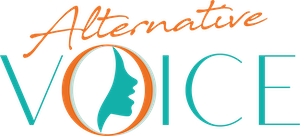
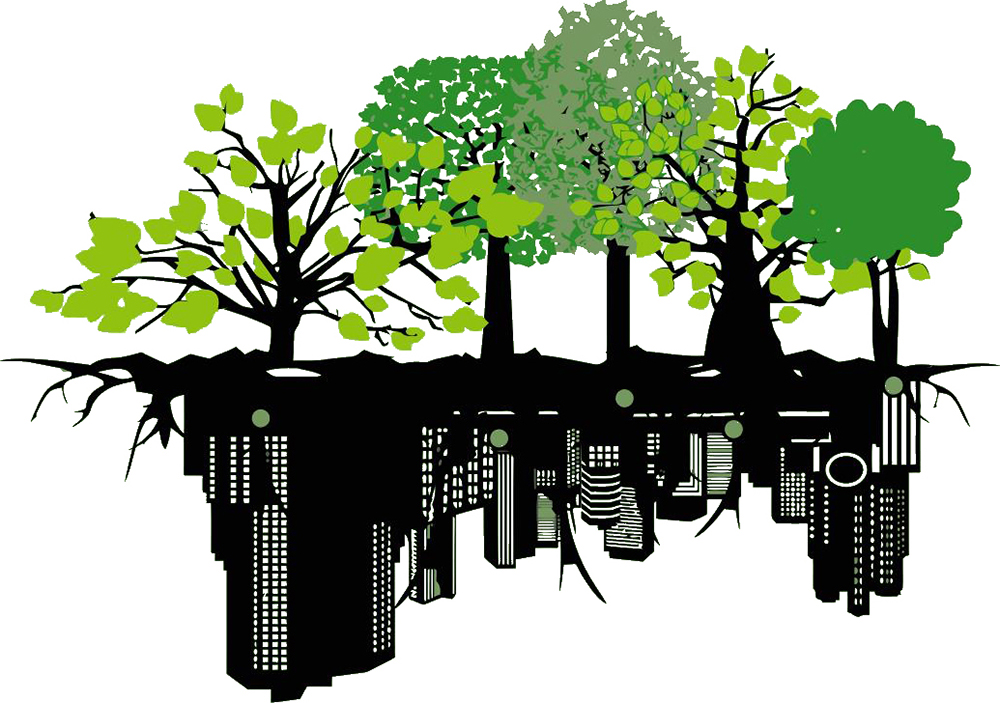 Graphic by Pjotr Theebe
Graphic by Pjotr Theebe 